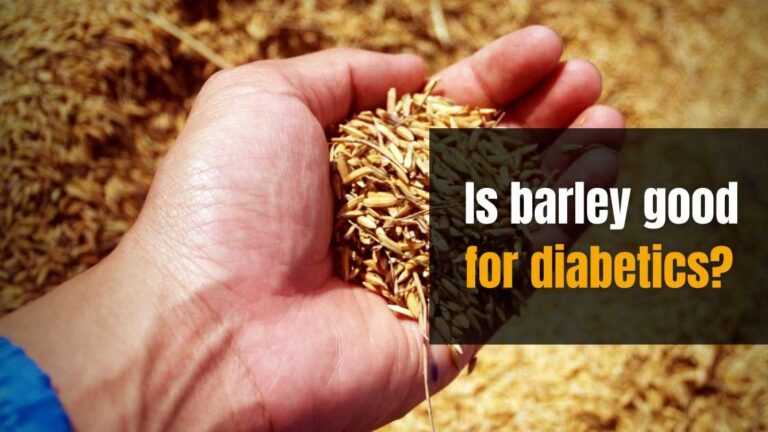Should diabetics eat clementine fruits? People with diabetes do not have the luxury of eating any fruit or food. They first have to do more research on the fruit or food before eating to prevent any risk of diabetic complications.
One of the fruits people diagnosed with diabetes check before eating is clementines. Not only are clementines delicious fruits but they also have a lot of health benefits. They improve the skin, help prevent cancer, prevent constipation amongst other health benefits.
Certain important factors must be taken into consideration to ascertain whether clementines are good for diabetic people or how much clementines can be consumed by diabetics.
Some of these important factors include:
- The type of sugar clementines have
- The glycemic index of clementines
- Other medicinal characteristics of clementines that may or may not be beneficial to diabetic people
Types of sugar present in clementine fruits
Clementines contain simple sugars such as fructose, glucose, and sucrose. They are responsible for the sweet taste of clementines. Natural sugars are good because they do not cause a sharp increase in blood sugar levels.
This also makes clementines a good source of energy and thus can be eaten by diabetic people. Complex sugars such as fiber are also present in clementines.
Does the type of sugars in clementine fruits contribute to an increase in blood sugar?
Complex sugar takes a long time to be broken down and digested in the body. This enables the slow release of sugar into the bloodstream.
This ensures that your blood sugar levels are stable for a long time. Clementines contain fiber, which is an example of complex sugar and since it takes a long time to be broken down, there will be no sudden increase in blood sugar levels.
Therefore, simple sugars in clementines can contribute to an increase in blood sugar levels. The complex sugars in clementine fruits do not contribute much to an increase in blood sugar.
It is safe for diabetic people to eat clementines because there are fewer carbohydrates (simple sugars).
What is the glycemic index (GI) of clementine fruits
A glycemic index is a tool used to measure how foods increase blood sugar levels.
Values are allocated to foods based on how slowly or quickly those foods can cause increases in blood sugar levels. A scale of 0-100 is used to classify foods as either low, medium, or high glycemic foods.
The lower the glycemic index of a food, the lower the chances of the food affecting your blood sugar levels.
Below is the classification of the glycemic index
| Low glycemic index | 0 to 55 |
| Medium glycemic index | 56 to 69 |
| High glycemic index | 70 to 100 |
Clementines have a low glycemic index. According to the International Tables of Glycemic Indices, mandarin segments, canned in juice, have a glycemic index of 47±2.
This means that mandarins and clementines have a low glycemic index. Diabetic people wondering whether they can eat clementines can rest assured that this fruit will not increase their blood sugar levels.
What is the glycemic load (GL) of clementine fruits
A glycemic load is a tool used to measure the amount of carbohydrate in a portion of food together with how quickly it increases blood glucose levels.
It is useful for people with diabetes. This tool helps them to assess which quantities of foods are most suitable for maintaining good blood glucose levels.
The classification of glycemic load is as follows:
| Low glycemic load | 0 to 10 |
| Medium glycemic load | 11 to 19 |
| High glycemic load | 20 and above |
Clementines have a glycemic load of 1.3. This means that one serving of clementine will only release a small amount of the overall carbohydrate content which is available. Therefore, clementines do not increase blood sugar levels to a high degree.
A sharp increase in blood sugar levels even in a diabetic is very highly unlikely because clementines have both a low glycemic index and glycemic load.
Do clementine fruits increase blood sugar?
Due to the presence of simple and complex sugars in clementines, they can increase blood sugar however in small amounts. Clementines will not significantly increase sugar levels when taken in moderate amounts.
A sharp increase in blood sugar levels will not happen when you eat clementines because the sugars which they contain take a long time to be broken down in the body, thus enabling a gradual release of sugar into the bloodstream.
This ensures that your blood sugar levels are stable for a long time.
Other health benefits of clementine fruit for diabetics
Clementine fruits do have other medicinal or nutritional characteristics that are beneficial to diabetic people. They contain high levels of fiber.
Studies conducted have shown that the high levels of fiber present in clementines can lead to an improvement in insulin sensitivity which is very helpful to diabetics.
They also improve the immune system, support heart health, promote good vision, and can also help in preventing cancer.
Clementine fruits are also good for diabetics because they have been found to contain some flavonoids that have a number of protective properties for diabetics. One of such is prevention against high glucose-induced cell proliferation.
The flavonoids in clementine fruits lead to a decrease in inflammatory mediators which have been linked with some vascular complications of diabetes.
Some studies conducted also show the potential of the flavonoids present in citrus fruits like clementine having a good anti-diabetic effect. That is to say, eating clementines may be able to help reduce blood sugar levels in diabetics but this needs for studies to fully elucidate this effect [1].
As such, eating clementines by diabetics will help prevent some diabetic complications. Diabetics can therefore eat clementine fruits in moderation.







Leave a Comment